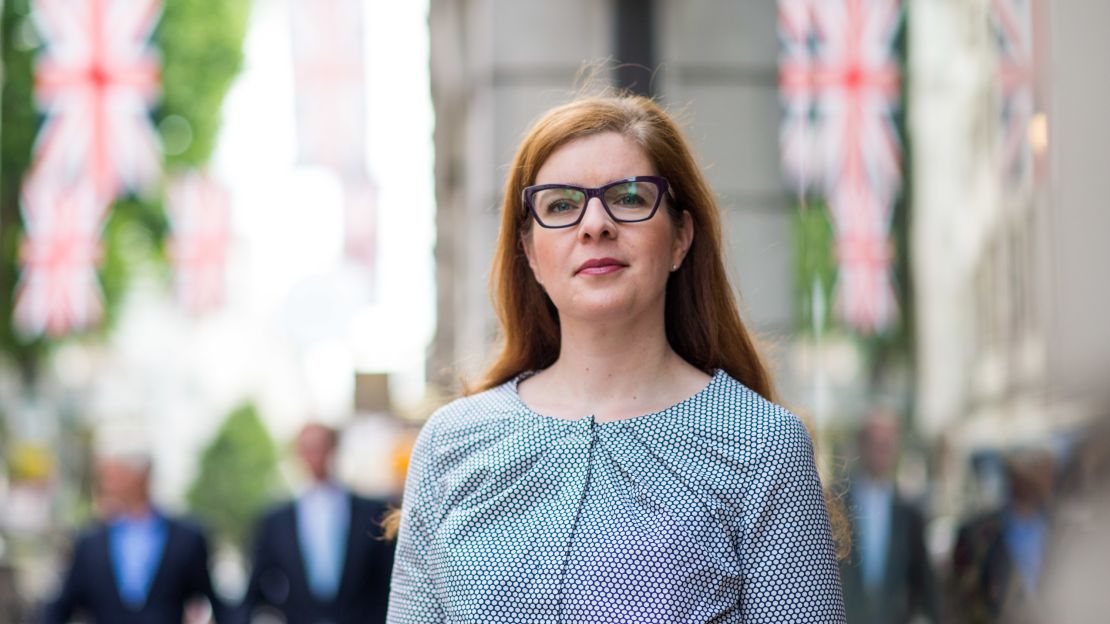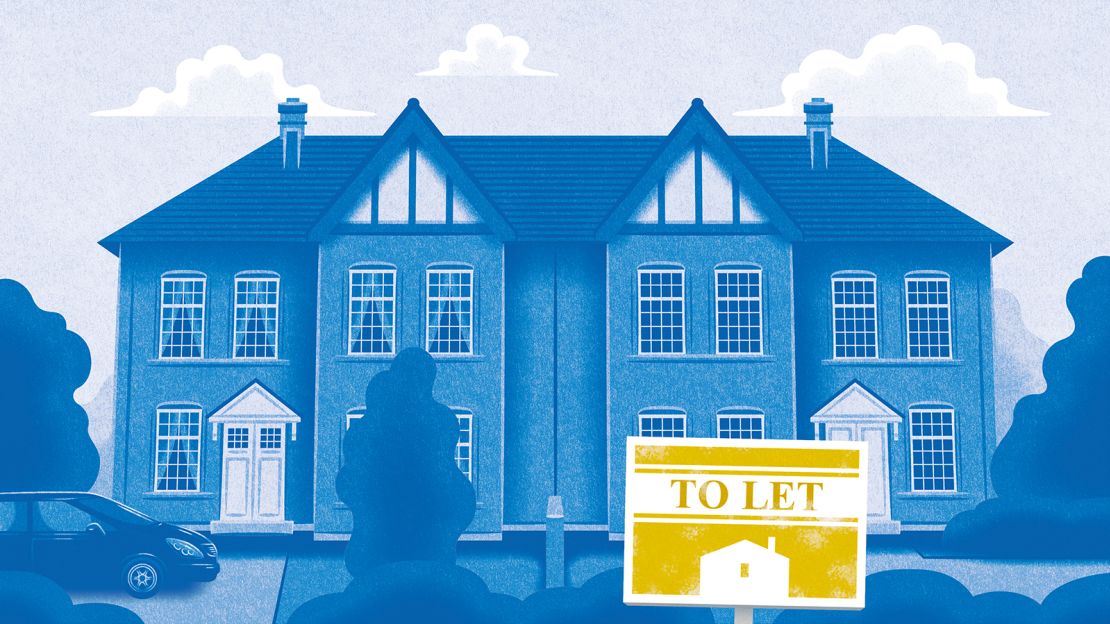The Britain that Samuele Marcora fell in love with still exists: He can ride his motorbike along winding mountain roads and past unspoilt sandy beaches, laugh at stand-up comedy nights, enjoy live music at rock gigs, or meet his PhD students for coffee.
As long as he doesn’t open his mouth.
Marcora doesn’t even have to talk in his mother tongue to spark a reaction: In his adopted hometown of Chatham in Kent, southeast of London, just speaking English with an Italian accent can be enough to provoke a reaction.
This is post-Brexit referendum Britain. And it’s a place Marcora, who has lived and worked in the UK for 18 years, barely recognizes.
“I was Britain’s biggest fan, pre-referendum,” the physiology professor recalls. “I was always very complimentary about it. Compared to Italy it’s less chaotic, more meritocratic, more cosmopolitan.”
“Then all of a sudden, you find out that a large part of the population don’t feel that way. They don’t want you here … I’ve been rejected by the British people.”
100 days ago, Britons went to the polls to vote on whether the country’s future lay inside or outside the European Union. After a bitter campaign that focused largely on immigration, a majority of voters backed Brexit, signalling the UK’s departure from the EU after more than 40 years.
That decision has left many of the 3.2 million EU citizens living in the UK in limbo as Britain decides how it will Brexit. Will they be allowed to stay? And do they want to live in a country that voted to leave?
READ MORE: Brexit ‘made me feel like a foreigner again’
‘I don’t feel welcome’
Tanja Bueltmann says she saw Brexit coming a long way off. Living in the northeast of England, one of the most eurosceptic areas of the UK, and active on Twitter, where she has frequently been attacked for her pro-EU stance, she was well aware of the rising tide of support for a Leave vote.
“I’ve no idea why anyone thought it would be otherwise,” the German-born history lecturer, who has spent 10 years in the UK, says. “I don’t understand how the polls got it so wrong.”

Kerstin Albers (not her real name) says she, too, saw the writing on the wall – but after 13 years in Britain, was nonetheless taken aback by the final results.
Albers and her family, also originally from Germany, were so concerned about the growth of anti-EU sentiment across the country that they began planning for a future outside the UK long before the first ballots were cast.
“Over the past two years, the atmosphere in the UK has changed towards EU migrants. I don’t feel welcome here [any more] … [It was] such a tolerant and open society, and we have enjoyed being part of it, but now it feels different.”
She decided to take pre-emptive action: “I am sad to leave friends, but at the same time, I don’t want to sit here for two years and wait.”
Just weeks after the Brexit vote, she was offered a new teaching job back in Germany. The Albers’ youngest daughter, who was just four when the family moved to the UK, is still at school, so she and her father will stay in England until she finishes her A-levels – the family now divided between two countries.
Albers says the Brexit vote was “very disappointing.” However, she also considers her family lucky: “We are not refugees, so we can go back. I’m more sorry for you, because I have 27 other countries I can go to.”
READ MORE: Anti-establishment tsunami sweeps Europe
Brexit heartbreak

For others, the decision whether to leave or stay is more complicated.
Sara Calamassi grew up in Brussels, and first came to the UK as a student in the early 2000s. She moved here permanently 11 years ago, and later married the boyfriend she’d met at university.
She says the “most horrible thing” about Brexit has been “to wake up the day after and see my husband so disappointed in his country.”
Calamassi and others interviewed by CNN say they are deeply concerned at the impact of Brexit on their ties with friends and loved ones in less EU-friendly areas.
“London is my home, but I studied in Scotland, my husband is from North Wales, and most of my friends are from other areas of the country,” she says.
“I always identified a lot with Britain … I love other parts of the UK, but I don’t feel comfortable going there now. I don’t really want to go out into the country of the 52%,” she says. “I want to stay here with the 48%.”
READ MORE: Can wounds ever heal in divided UK?
Hate crime rising
In the aftermath of the Brexit vote, reports of hate crime against migrants in the UK spiked; police recorded five times the usual number of racist attacks in the week after the referendum.
In Harlow, Essex, an area with high levels of Eastern European expats – and a high Leave vote – Polish man Arkadiusz “Arek” Jozwik was attacked and left for dead in August; police are treating his killing as a possible hate crime.
“Britain won the Olympics of xenophobia,” on June 23, says physiology professor Marcora. He says he’s seen this hatred of foreigners at first hand.
“I wouldn’t go talking Italian in one of the pubs in Chatham town center or in Gillingham (another nearby town). I wouldn’t feel safe.” Even in “slightly posher” Rochester, he says, someone yelled at him to “Go home!” when they heard him speak.
And he says his wife, who is Chinese and “recognizably an immigrant” has been subjected to even worse treatment.
Having undergone a mastectomy as a result of breast cancer, she went to a local chemist to collect a prescription, only to be told “your drugs are very expensive!” He said she was made to feel as though she did not deserve the National Health Service (NHS) medication as a person who wasn’t born in Britain.
“[The tablets] cost £88 a month, and we pay our taxes,” says a clearly angry Marcora. “All through the campaign there were stories about health tourism, about ‘immigrants’ coming in to get treatment, but it is unbelievable that someone would say that, that they felt allowed to say it.”
READ MORE: The British town that wants to leave Europe
Best and brightest flee

A small survey carried out by the pro-Remain group Academics for Europe found that 71% of those questioned were thinking about leaving the UK in the wake of Brexit.
Boin Cheong grew up in Berlin, but has made London her home. Now she’s not so sure about that decision.
“I really don’t see my long term future in this country,” she says. “I’ve started looking at other places.”
“I want to leave because I feel unwelcome, but also because it feels like there’s no bright future here anymore.”

She fears the UK will be left facing the double-whammy of a recession and a brain drain of its brightest talent if Brexit goes ahead.
READ MORE: Could these ads have changed the vote?
Bueltmann agrees that a mass exodus of European expats from the UK would have a huge negative effect on the country – on universities like hers, and particularly on the NHS, where it would have “massive repercussions.”
“We need every EU migrant in the UK not to work for one day to demonstrate the impact it would have in universities, hospitals, everywhere,” she says.
For now, at least, Calamassi will stay put – but she says she no longer feels at home in the UK.
“I’m working towards British citizenship at the moment, which is kind of weird, to be doing that for a country that doesn’t want me.”
Photos by Sarah Tilotta, illustrations by Kouzou Sakai. Harshadha Balasubramanian and CNN’s Rachel Clarke contributed to this report.




